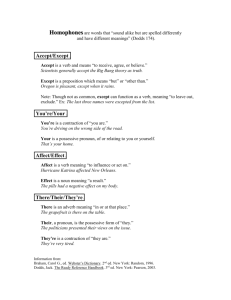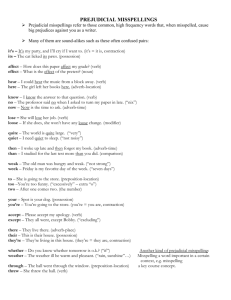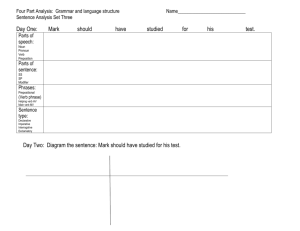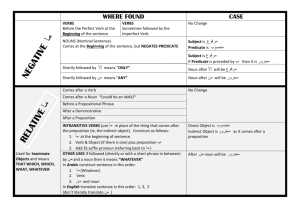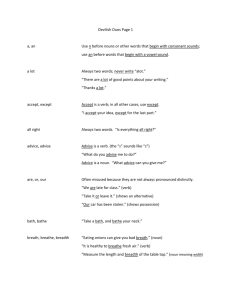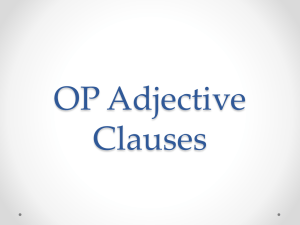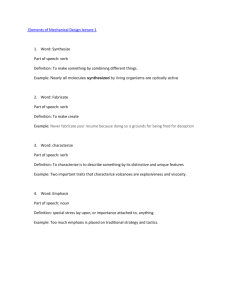Common Homophones
advertisement
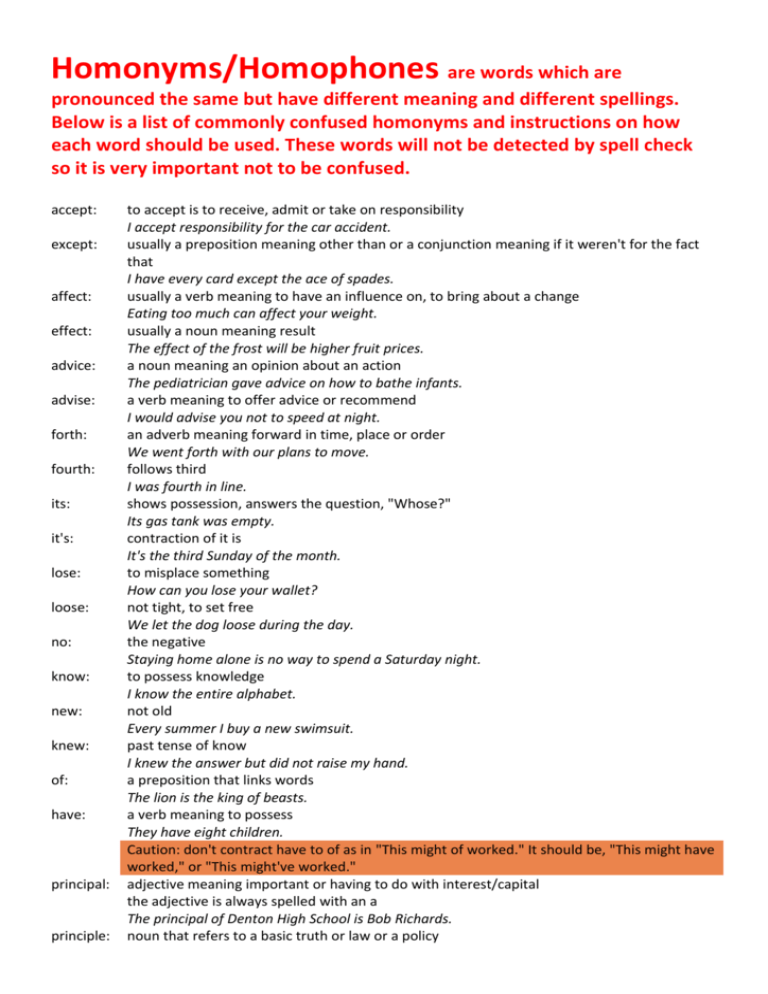
Homonyms/Homophones are words which are pronounced the same but have different meaning and different spellings. Below is a list of commonly confused homonyms and instructions on how each word should be used. These words will not be detected by spell check so it is very important not to be confused. accept: except: affect: effect: advice: advise: forth: fourth: its: it's: lose: loose: no: know: new: knew: of: have: principal: principle: to accept is to receive, admit or take on responsibility I accept responsibility for the car accident. usually a preposition meaning other than or a conjunction meaning if it weren't for the fact that I have every card except the ace of spades. usually a verb meaning to have an influence on, to bring about a change Eating too much can affect your weight. usually a noun meaning result The effect of the frost will be higher fruit prices. a noun meaning an opinion about an action The pediatrician gave advice on how to bathe infants. a verb meaning to offer advice or recommend I would advise you not to speed at night. an adverb meaning forward in time, place or order We went forth with our plans to move. follows third I was fourth in line. shows possession, answers the question, "Whose?" Its gas tank was empty. contraction of it is It's the third Sunday of the month. to misplace something How can you lose your wallet? not tight, to set free We let the dog loose during the day. the negative Staying home alone is no way to spend a Saturday night. to possess knowledge I know the entire alphabet. not old Every summer I buy a new swimsuit. past tense of know I knew the answer but did not raise my hand. a preposition that links words The lion is the king of beasts. a verb meaning to possess They have eight children. Caution: don't contract have to of as in "This might of worked." It should be, "This might have worked," or "This might've worked." adjective meaning important or having to do with interest/capital the adjective is always spelled with an a The principal of Denton High School is Bob Richards. noun that refers to a basic truth or law or a policy there: their: they're: to: too: two: were: where: whose: who's: your: you're: It was against my principles to argue with the elderly man. (1) indicates direction: The dog is over there. (2) subject: There are five cookies left. shows possession: That is their new home. contraction of they are: They're going to be late. (1) preposition used to link words: Mary went to the library. (2) infinitive form of the verb: Bob likes to juggle. (1) refers to quantity: I ate too much. (2) also: Sandy is going to the library too. the number two: We had two flowers to plant. verb: The twins were tired. direction or place: Where did I leave my glasses? shows possession: Whose dirty shoes are on the carpet? contraction of who is: Who's coming for supper? shows possession: Those are your dirty shoes. contraction of you are: You're always late for supper.
